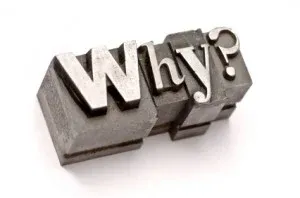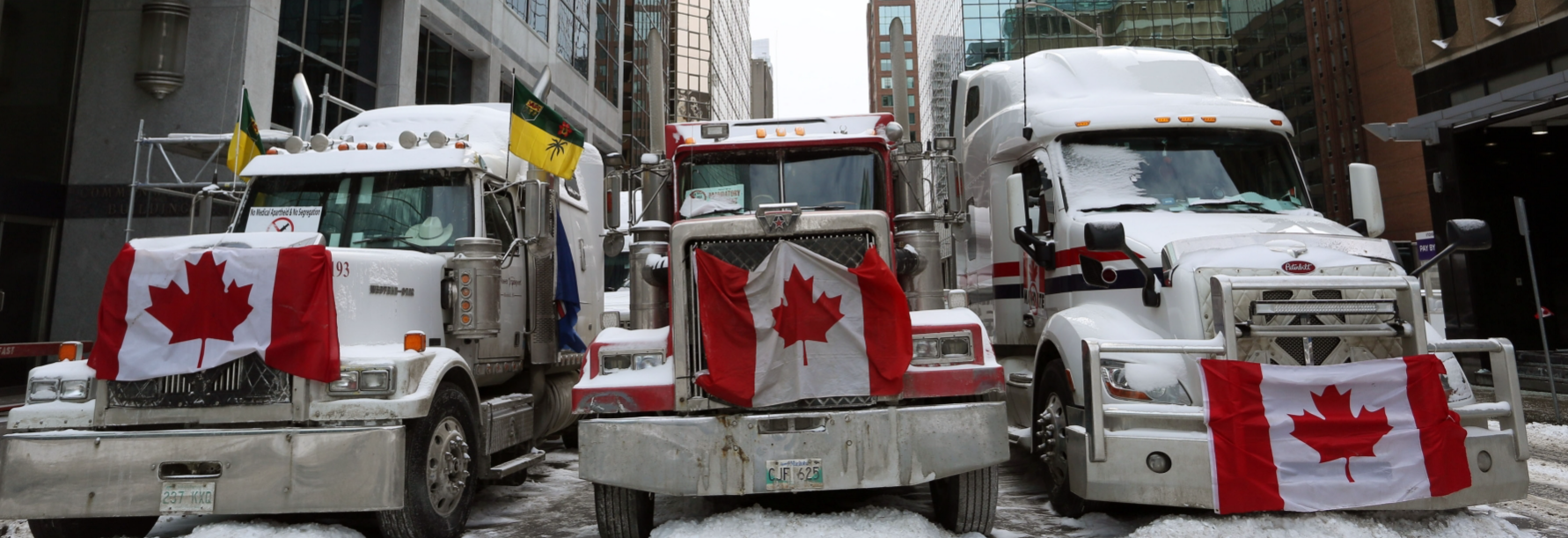But Why?

We have been getting some great feedback on the weekly newsletter in general and we would love to hear from more of you, BTW! While people will naturally gravitate to one column over the others based on their own life and interests, we are realizing that perhaps there needs to be a bit more of a case made for the Down the Rabbit Hole thread for those who are not immediately interested. Earlier in the week a subscriber was telling us how valuable and interesting the newsletter has been to them. As we asked questions about what in particular they liked we realized that they had read this particular column less than others. We asked why and they just kinda exclaimed “It’s not really my thing.” While that’s a perfectly fine response we also want to offer a bit of a case for why we believe that this is an important topic that is worth pushing yourself to pay attention to. While what follows is not a comprehensive argument, it is simply one point based on some current events that we think illustrate why this technology offers some real utility as our society continues to evolve.
Recently there have been a few international news stories that, when held in view together, hopefully neutralize some of the political differences in the specifics of each particular story. We are not bringing these stories up to make any statement about the stories or conflicts themselves as much as to highlight something that is happening in both stories that get at the actual aim of this article, illustrating why we might want decentralized systems, and in this instance, decentralized financial systems, aka DeFi.
Here are the two instances, in brief (you can read more about them elsewhere as there are plenty of articles about both.)

In Canada, a convoy of trucks from all over the country descended on Ottawa and began blockading roads in protest of COVID-19 restrictions and mandates. Dubbed the “Freedom Convoy,” the protestors occupied the downtown core of the capital of Canada and stated that they would not leave until restrictions and mandates were repealed.
As a response, Canadian Prime Minister Justin Trudeau invoked The Emergencies Act to freeze bank accounts and other centralized financial services used by protestors as well as others that were trying to support them. The Emergencies Act is a statute passed by the Parliament of Canada in 1988 which authorizes the Government of Canada to take extraordinary temporary measures to respond to public welfare emergencies, public order emergencies, international emergencies and war emergencies. This was the first time it was invoked since it was passed in 1988.

The other news story that helps illustrate this point is Russia invading Ukraine and the international sanctions that followed. Last week, Elvira Nabiullina, the head of Russia's central bank, announced bad news for her nation.
"The conditions for the Russian economy have altered dramatically," Nabiullina said, "The new sanctions imposed by foreign states have entailed a considerable increase in the ruble exchange rate and limited the opportunities for Russia to use its gold and foreign currency reserves." Russia's economy is facing the gravest crisis since the 1991 fall of the Soviet Union after the West imposed heavy sanctions on almost the entire Russian financial and corporate system following Moscow's invasion of Ukraine. The Kremlin accused the United States on Wednesday of declaring an economic war on Russia. This terrible story continues and we encourage you to keep paying attention and praying for our brothers and sisters suffering throughout that entire region.
These stories, together illustrate the ways that centralized powers can weaponize financial systems and this reality is probably the most obvious of arguments to be wary of centralized institutions lest one day it's your accounts they freeze.
Trudeau invoking the Emergency Act made it so that the Canadian government could freeze its citizens’ bank accounts without due process or court order.
The order said that banks and financial service providers including credit unions, loan companies, crowdfunding platforms, and crypto exchanges must stop “providing any financial or related services” to people associated with the protest.
“Wait, these sanctions include crypto!? I thought we were talking about it being an alternative” you might wonder. It’s important that we remind you of and emphasize the distinction between custodial and non-custodial wallets (we covered that here). Cryptocurrencies like Bitcoin or Ethereum can be held in non-custodial wallets which give sovereignty to the individual with the seed phrase.
Remember, not your keys not your crypto.
So, in Canada, if you’re involved in (or in any way support) the protests they can:
Freeze your life savings.
Cancel your credit card.
Stop your mortgage application.
Eliminate you from the banking system.
Black list your crypto wallet address from transacting with centralized exchanges.
Even if you hate everything the convoy stands for, it is important that we don’t overlook the undermining of rights and due process that has taken place. What if this was #BlackLivesMatter? What if this was a religious group? What if this was your political party? In the end, you need to ask, what if this was you? When we think about rights and rules it is really important that we do not lose sight of what should be out of bounds simply because we do not agree with the people it is happening to. Those tables could turn in a moment's notice. This has caused a lot of Canadians, regardless of their feelings about this particular protest, to consider taking their money out of the banks.
David Heinemeier Hansson, Danish programmer, creator of the popular Ruby on Rails web development framework, and longtime, vocal critic of cryptocurrencies recently published an incredible article entitled “I Was Wrong, We Need Crypto” in direct response to these events in Canada. In the article he writes:
I don't think we have any idea what kind of radicalizing seeds have been planted by Trudeau with these actions. This is one of those world events that you can imagine a documentary of the future opening with: "It all started when...".
Whether it’s a Ukrainian fleeing from war, a Canadian protester, or a Russian trying to protect their savings, the self-custody of non-sovereign money enables people to protect the value of their wealth from the decisions of misaligned political leaders.
Fiat currencies devalue when governments make poor choices. Maybe this is why Bitcoin has now surpassed the Ruble in market cap.
Lest we be duped by politicians that are trying to leverage the Russian sanctions for their own opposition of crypto, we should at least take a moment to address the fact that cryptocurrencies work great for individuals but they are really not as useful to nation states.
Cryptocurrencies risk undermining sanctions against Russia, allowing Putin and his cronies to evade economic pain.
— Elizabeth Warren (@SenWarren) February 28, 2022
U.S. financial regulators need to take this threat seriously and increase their scrutiny of digital assets. https://t.co/4lCUNcUC29
When the USA put sanctions on the Russian central bank, it froze $640 billion in assets spread out across the world. That’s roughly 1/3 of the crypto market cap. Crypto’s not big enough to have protected this scale of wealth from western sanctions. You cannot move $640b in wealth without people noticing, no matter how awesome your cryptography is. As soon as the level of wealth is significant crypto stops being useful as a tool to obfuscate your activity. If the global powers are paying attention, there is nowhere to hide. It’s a public ledger after all.
It is however extremely useful to the individuals in both Russia and Ukraine that are being devastated by this conflict. While there is no evidence that ‘Putin and his cronies’ are using crypto to avoid sanctions, both Ukrainian and Russian citizens absolutely are. There has been a huge spike in Ruble-BTC exchange volume and there are reports from the ground like the following tweet:
My Ukrainian credit cards don't work anymore. I'm safe physically in Kazakhstan, but all my savings are gone.
— ARTYOM FΞDOSOV 🇺🇦 (@usleepwalker) February 25, 2022
Crypto is the only money I still have, and today I can say without exaggeration that $BTC, $ETH, and #NFT are going to save my life while I can't come back home.
Crypto disproportionately empowers individuals, not nations, institutions, or oligarchs.
On top of all of the above, the Web3 and crypto communities have been uniting to support Ukraine with cryptocurrency and resist the invasion. They have actually far outpaced even the United Nations’ in aid. UkraineDAO is just one example of how communities are uniting to make it happen. While so many think about crypto as a way to get rich, what we are finding is that it might actually be a tool to make us free.
